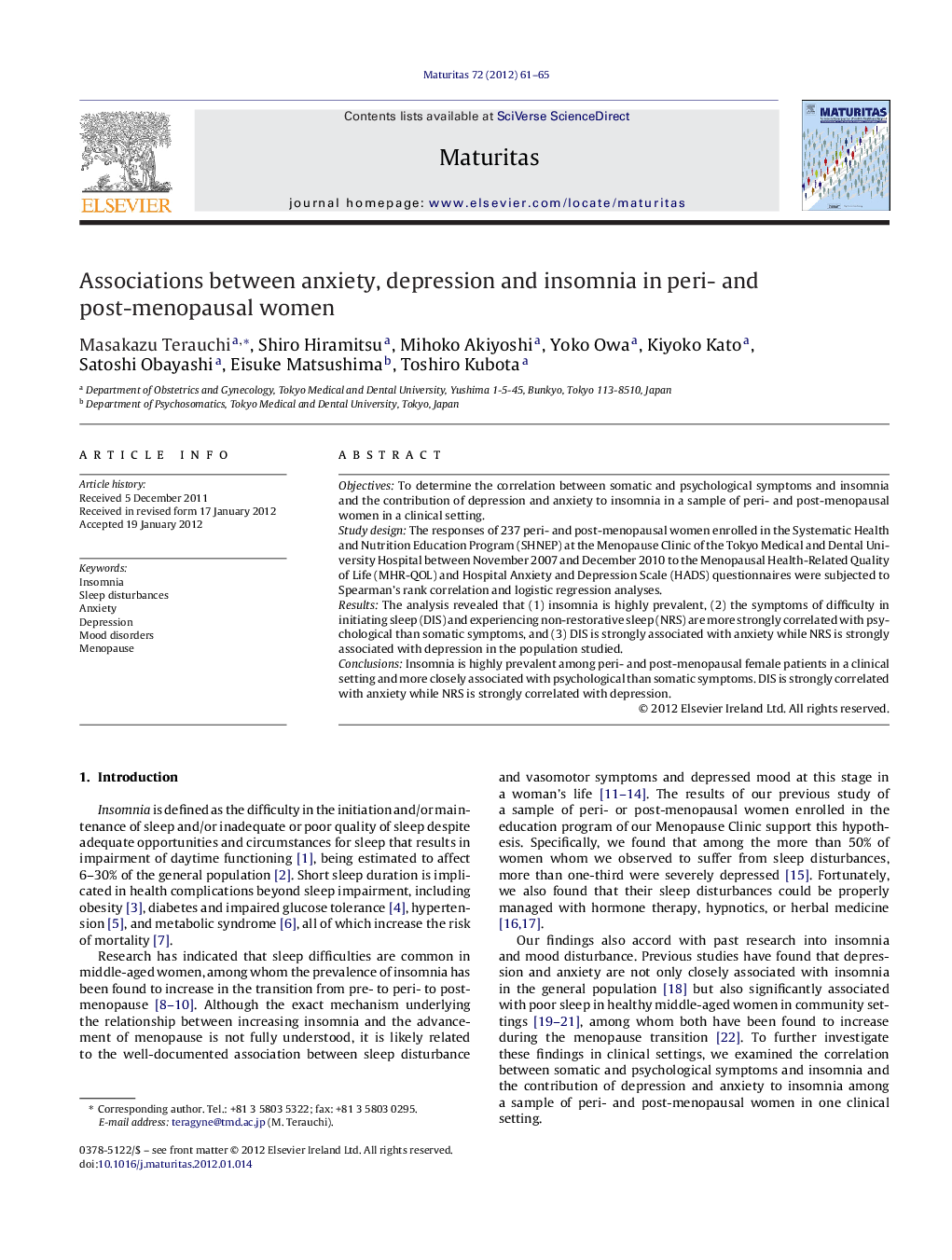| Article ID | Journal | Published Year | Pages | File Type |
|---|---|---|---|---|
| 1917667 | Maturitas | 2012 | 5 Pages |
ObjectivesTo determine the correlation between somatic and psychological symptoms and insomnia and the contribution of depression and anxiety to insomnia in a sample of peri- and post-menopausal women in a clinical setting.Study designThe responses of 237 peri- and post-menopausal women enrolled in the Systematic Health and Nutrition Education Program (SHNEP) at the Menopause Clinic of the Tokyo Medical and Dental University Hospital between November 2007 and December 2010 to the Menopausal Health-Related Quality of Life (MHR-QOL) and Hospital Anxiety and Depression Scale (HADS) questionnaires were subjected to Spearman's rank correlation and logistic regression analyses.ResultsThe analysis revealed that (1) insomnia is highly prevalent, (2) the symptoms of difficulty in initiating sleep (DIS) and experiencing non-restorative sleep (NRS) are more strongly correlated with psychological than somatic symptoms, and (3) DIS is strongly associated with anxiety while NRS is strongly associated with depression in the population studied.ConclusionsInsomnia is highly prevalent among peri- and post-menopausal female patients in a clinical setting and more closely associated with psychological than somatic symptoms. DIS is strongly correlated with anxiety while NRS is strongly correlated with depression.
